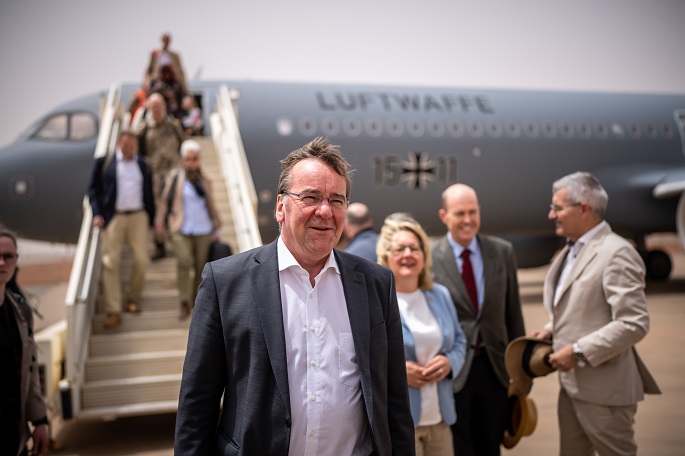German ministers visit Sahel region before withdrawing troops
Published : 12 Apr 2023, 22:12
German Defence Minister Boris Pistorius and Development Minister Svenja Schulze began a joint visit to the West African state of Niger on Wednesday, reported dpa.
During the trip, which was not announced beforehand for security reasons, both want to get an idea of the situation before the Bundeswehr withdraws from the neighbouring state of Mali and a redefinition of Germany's engagement in the Sahel region is pending.
The two politicians landed at the airport of the capital Niamey, where the Bundeswehr maintains a central air transport base. This is the hub for missions in which German soldiers are involved together with UN partners or under the leadership of the EU.
Cooperation with Niger is currently being expanded. In neighbouring Mali, on the other hand, the Bundeswehr's largest foreign deployment is coming to an end: the German government wants to withdraw the more than 1,100 German Blue Helmet soldiers of the UN mission Minusma by May 2024.
In doing so, Germany is also drawing conclusions from a months-long dispute with the military rulers of the West African state.
Since the recent coup in May 2021, Mali has been led by a military transitional government that has sought cooperation with Russia in the fight against Islamists and has largely limited Minusma's scope for action.
Germany has spent about €2.5 billion ($2.7 billion) on civilian development aid in the Sahel region since 2013, mainly on agricultural projects and efforts to strengthen state structures.
From Berlin, the non-profit organization Welthungerhilfe stressed on Wednesday that it was important for Germany's commitment to continue.
"For decades, the population of Mali has been the plaything of different interests - whether by foreign forces or violent armed groups in their own country," said Secretary General Mathias Mogge. Strong and diverse civil society is indispensable for long-term peace and must be strengthened in the long term, he added.


